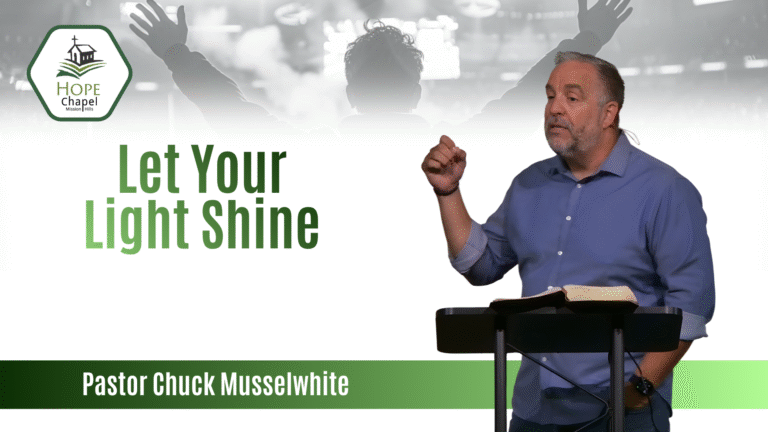The book of James offers some of the most practical guidance for Christians who want to move beyond simply hearing God’s Word to actually living it out. James, as the first pastor of the Jerusalem church, was tired of seeing people who claimed to follow Jesus but showed little evidence in their actions. He wanted believers to demonstrate their faith through tangible changes in their behavior.
Why Is Living the Word So Important?
James makes it clear that merely listening to Scripture without application leads to self-deception. When we only hear the Word, we can easily twist and rationalize what the Bible means to fit our preferences. But when we put Scripture into action, we discover its truth, power, and life-changing impact.
Jesus himself emphasized this principle in Matthew 7 when he compared the person who hears and does his words to a wise man who built his house on rock. The foundation held firm when storms came. In contrast, the person who only hears but doesn’t act is like someone who built on sand—destined for collapse when challenges arise.
How Can We Control Our Anger?
James identifies three practical ways to live the Word, beginning with slowing our anger. He understood that anger can quickly derail our spiritual growth and blind us to God’s purposes. Here’s his practical advice:
Listen Twice as Much as You Speak
“Everyone should be quick to listen, slow to speak, and slow to become angry.” This simple principle—listening more than we talk—can prevent many conflicts. When we create an echo chamber of our own opinions without truly hearing others, we often become angry unnecessarily.
As Solomon wisely noted in Proverbs 10:19, “When words are many, transgression is not lacking, but whoever restrains his lips is prudent.” Our words frequently get us into trouble, while listening helps us understand others better.
Speak Less
James encourages us to be “slow to speak.” Proverbs 16:32 reminds us that controlling our speech demonstrates greater strength than military might: “Whoever is slow to anger is better than the mighty, and he who rules his spirit than he who takes a city.”
Even when we feel the urge to defend ourselves or express our opinions, sometimes silence is the wiser choice. As Proverbs notes, “Even a fool who keeps silent is considered wise. When he closes his lips, he’s deemed intelligent.”
Put Away Filth
James connects anger to the “filthiness and rampant wickedness” in our lives. Often, our anger isn’t really about the immediate situation but stems from deeper sin issues. When we’re caught in sin, we become defensive out of fear of exposure, and anger serves as a smokescreen.
Paul lists some of these behaviors in Colossians 3:8: “But now you must put them all away: anger, wrath, malice, slander, and obscene talk from your mouth.” These negative patterns create a cycle that fuels our anger.
Receive the Word with Meekness
The solution James offers is to “receive with meekness the implanted word which is able to save your souls.” Meekness doesn’t mean weakness—it refers to having a calm temper that isn’t easily provoked.
Receiving God’s Word isn’t just about Sunday sermons. It means establishing a steady diet of Scripture through daily devotions, podcasts, videos, or any means that helps us internalize biblical truth. When we approach God’s Word with a calm spirit, we’re better able to absorb and apply its teachings.
What Does It Mean to Do the Word?
The second key to living the Word is becoming doers, not just hearers. James uses a powerful analogy: hearing without doing is like looking in a mirror and immediately forgetting what you look like. In our distracted world with diminishing attention spans, we need more than passive listening.
James promises that the person “who looks into the perfect law, the law of liberty, and perseveres…being a doer who acts, he will be blessed in his doing.” This blessing comes with three requirements:
- We must look deeply into God’s Word, not just skim the surface
- We must persevere, continuing in faith despite challenges
- We must act on what we learn, putting it into practice
Doing the Word goes beyond mere obedience. It includes creating healthy habits and routines that draw us closer to Jesus and enable us to care for others, especially those who are struggling.
How Important Is Controlling Our Tongue?
The third aspect of living the Word involves taming our tongue. James writes, “If anyone thinks he is religious and does not bridle his tongue but deceives his heart, this person’s religion is worthless.”
James uses the metaphor of a bridle—just as a small bit controls a powerful horse, we must control our speech. Later in his letter, he’ll compare the tongue to a ship’s rudder and a spark that can ignite a forest fire, emphasizing its disproportionate power.
Our words reveal what’s in our hearts. As David wrote in Psalm 34:13, “Keep your tongue from evil and your lips from speaking deceit.” Once words leave our mouths, like toothpaste from a tube, they can’t be taken back. We might have negative thoughts, but that doesn’t mean we should express them.
What Should Our Focus Be Instead?
James concludes by directing our attention outward in two ways:
- Caring for the vulnerable: “Religion that is pure and undefiled before God the Father is this: to visit orphans and widows in their affliction…” True faith manifests in compassion for those in need.
- Remaining unstained by the world: “…and to keep oneself unstained from the world.” When we’re not distracted by anger or careless speech, we can better recognize and avoid the traps the world sets for us.
Life Application
Living the Word requires both eliminating negative patterns and adding positive practices. This week, consider these practical steps:
- Practice the “listen twice, speak once” principle in your conversations. Before responding in a discussion, take time to truly understand what the other person is saying.
- Identify your anger triggers. What situations or topics consistently provoke your anger? How might unaddressed sin be contributing to these reactions?
- Establish a consistent pattern for receiving God’s Word. Whether it’s morning devotions, audio Bible during your commute, or another method, find what works for you.
- Look for one practical way to care for someone vulnerable in your community. Who might need support, encouragement, or practical help?
Ask yourself: Am I merely accumulating biblical knowledge, or am I allowing God’s Word to transform my actions? What evidence would others see that I’m not just hearing the Word but living it out?
Remember, James isn’t interested in Christians who are “all talk and no action.” He wants to see evidence—fruit—in our lives that demonstrates we’re truly following Jesus. The blessing comes not in the hearing, but in the doing.
Visit our website https://hopeforlompoc.org
New Here? Fill out a connection card https://buff.ly/3qb2XkA
Send a Prayer Request https://buff.ly/2IYzxQv
Tithes & Offerings https://buff.ly/3pVIvme
Daily Devotional https://dailywalkdevotion.com



